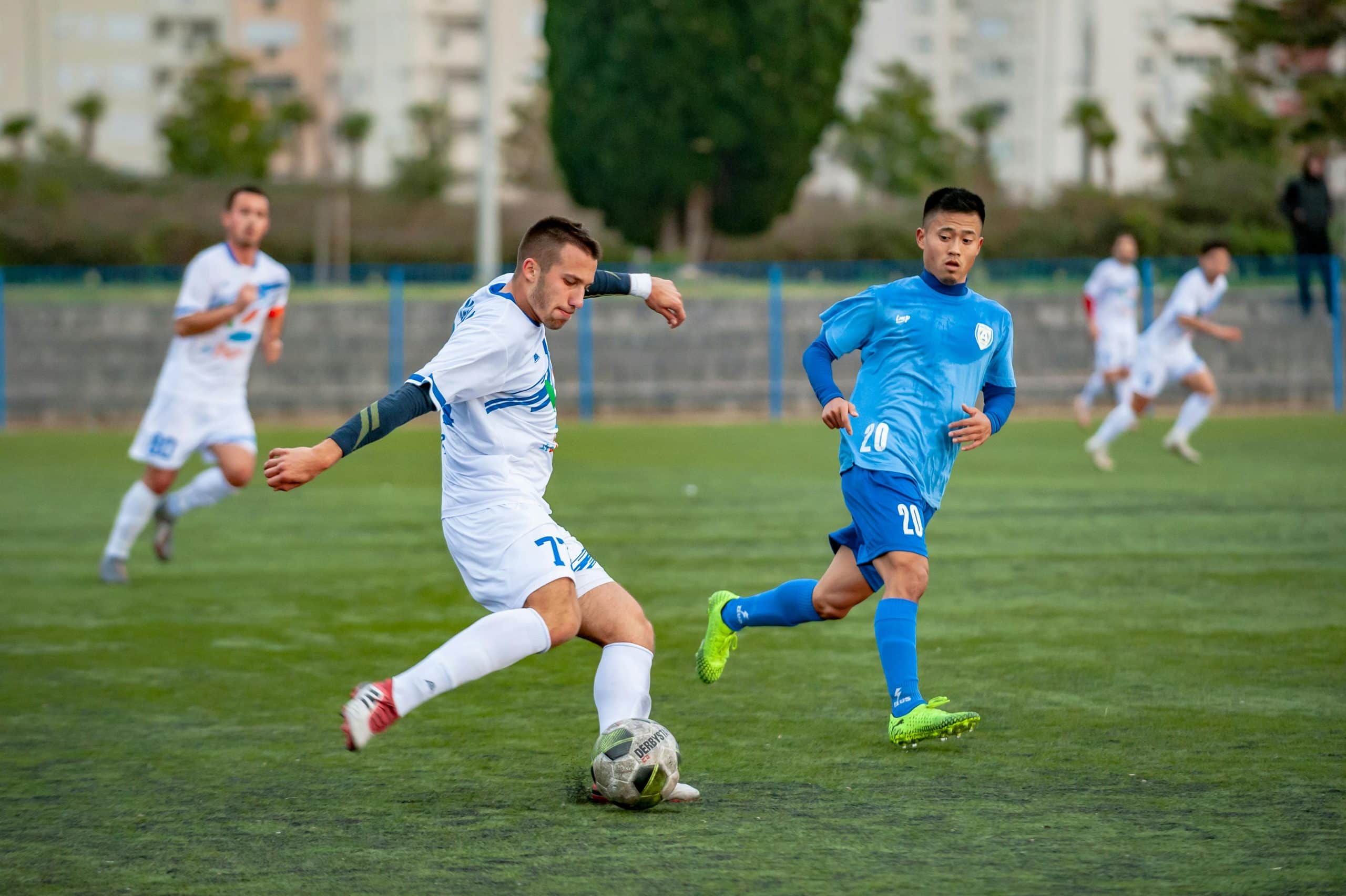What’s the Best Approach to Build Mental Resilience in Young Soccer Players?

In the kaleidoscope of factors that contribute to the success of a young soccer player, mental resilience, also known as mental toughness, is perhaps one of the least acknowledged, yet most essential. It has the power to separate the good from the great, the passionate from the enduring. The question that arises, then, is how can mental resilience be built in young soccer players? Let’s delve into some of the best approaches to cultivate this vital attribute.
Mental Resilience: An Essential Component of Success
Before diving into the best methods to build mental resilience, it’s essential to understand what mental resilience is and why it’s crucial for a young soccer player’s success.
Dans le meme genre : How Can Cognitive Training Tools Improve Reaction Time in Tennis Players?
Mental resilience is the ability to emotionally and mentally withstand the challenges and pressures that come with competitive sports. It includes aspects like maintaining focus and confidence in adverse situations, handling stress effectively, and rebounding from failures and disappointments.
For a young soccer player, these traits are essential. The competitive nature of the sport, coupled with the physical exertion it requires, can often lead to stressful situations. A player may be required to take a decisive penalty, perform under the scrutiny of spectators, or rebound from a poor performance. In such cases, the player’s mental resilience can be the difference between a victorious outcome and a disheartening loss.
Cela peut vous intéresser : How to Design an Off-Season Strength Program for Professional Soccer Players?
Establishing a Positive Mindset
One of the first steps to build mental resilience is by establishing a positive mindset. This allows the player to see challenges as opportunities rather than threats.
A young player’s mindset can be shaped through several practices. One popular method is through positive self-talk, where encouraging and constructive phrases are repeated to oneself. For instance, instead of saying "I can’t do this," the player could say, "I can handle this." This small shift in language can have a significant impact on the player’s approach towards challenges.
Another technique is visualization, where the player imagines themselves succeeding in a challenging situation. For example, a player can visualise themselves scoring the winning goal in a tight match. This method has proven to be effective in boosting confidence and enhancing performance.
Training Discipline and Consistency
Discipline and consistency are vital attributes that contribute to mental resilience. They allow a young player to remain dedicated and focused, even when the going gets tough.
Discipline involves sticking to a consistent training schedule, following a healthy diet, and getting adequate rest. It’s about making the right choices, even when they’re not the most exciting or easiest ones. On the other hand, consistency means showing up and giving one’s best effort, even on the days when the motivation is low.
To instill these qualities, coaches and parents can set clear expectations and routines for the young player. They can also provide positive reinforcement when the player exhibits these behaviours, encouraging them to develop these habits.
Developing Emotional Intelligence
Emotional intelligence is another key factor in building mental resilience. It involves understanding and managing one’s own emotions and empathizing with others.
By developing emotional intelligence, a young soccer player can better handle the emotional ups and downs that come with competitive sports. They can learn to manage their emotions during high-pressure situations, stay calm during conflicts, and empathize with their teammates.
To develop emotional intelligence, young players can be encouraged to express their feelings and thoughts. Coaches and parents can also provide guidance on how to manage emotions effectively and constructively.
Encouraging Supportive Relationships
Finally, supportive relationships can play a significant role in building mental resilience. These include relationships with coaches, parents, and teammates.
Supportive relationships provide a safe space for young players to share their experiences, struggles, and achievements. They can also provide encouragement, advice, and constructive feedback, helping the player to grow and improve.
To foster supportive relationships, it’s important to cultivate a positive and inclusive team culture. Coaches and parents should also strive to build trust and open communication with the player, encouraging them to express themselves freely.
Building mental resilience in young soccer players is not a quick or easy process. It requires consistent effort, patience, and determination from both the players and the people guiding them. However, by implementing these approaches, we can help shape not just great athletes, but resilient individuals who can thrive in the face of adversity.
Building Physical and Mental Stamina
Physical endurance and mental stamina go hand in hand in developing a high level of mental resilience in young soccer players. It’s about learning to push the boundaries and endure, even when the body and mind scream otherwise.
Physical stamina can be developed through regular and rigorous training sessions. Incorporating routines that challenge the player’s endurance, strength, and agility can help build physical toughness. For instance, long-distance running, high-intensity interval training, and strength training can be part of the player’s training regimen.
However, the role of mental stamina shouldn’t be underestimated. It’s about the capacity to stay focused, face challenges head-on, and remain persistent despite repeated failures or setbacks. Techniques like mindfulness and meditation can help young players develop mental stamina. These practices teach them to stay present, focus on the task at hand, and ignore distractions.
To help foster physical and mental stamina, it’s crucial for coaches to design training sessions that challenge the players physically and mentally. They can gradually increase the intensity and complexity of the training, pushing the players to improve constantly. It’s also important to educate the players about the significance of these traits and encourage them to embrace the process of growth and improvement.
The Importance of Rest and Recovery
While rigorous training and pushing boundaries are essential, so is rest and recovery. It allows the body to heal, the mind to relax, and is an integral part of building mental resilience.
A well-rested player is more likely to be mentally sharp, emotionally balanced, and physically ready to tackle challenges. Therefore, it’s important that young players understand the value of rest and incorporate adequate downtime in their routine. This could include getting enough sleep, taking regular breaks during training, and having days off to relax and rejuvenate.
At the same time, recovery practices like physiotherapy, massage, and mindfulness exercises can help the player recuperate from the physical and mental fatigue that comes with intense training and competition. They can also help prevent injuries and burnout, which can otherwise hinder the player’s progress and affect their mental resilience.
Coaches and parents can play a pivotal role in this aspect. They can ensure the players are getting adequate rest, educate them about the importance of recovery, and introduce them to effective recovery practices. This balanced approach of pushing boundaries and allowing time for rest and recovery can significantly enhance a player’s mental resilience.
Conclusion
Building mental resilience in young soccer players is a multifaceted process. It involves nourishing a positive mindset, instilling discipline and consistency, developing emotional intelligence, encouraging supportive relationships, building physical and mental stamina, and recognizing the importance of rest and recovery.
While this might seem like a challenging task, with consistent effort, patience, and guidance, young soccer players can develop formidable mental resilience, setting them up for success not only on the soccer field but in every aspect of life.
Remember, resilience is not just about overcoming challenges, but also about growing and learning from them. So, let’s empower our young soccer players to become not just skilled and resilient athletes, but resilient individuals who can handle whatever life throws at them.
